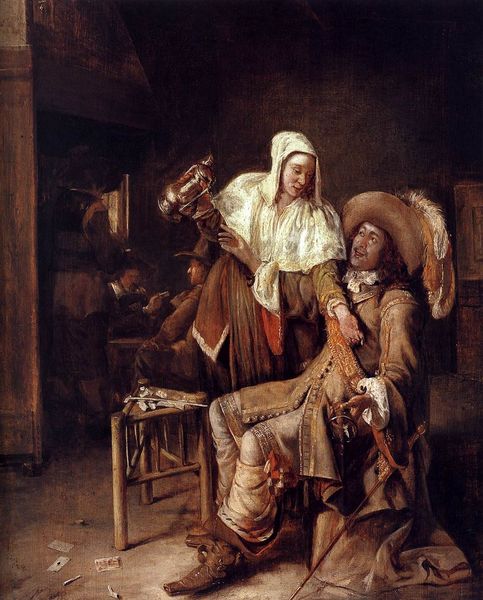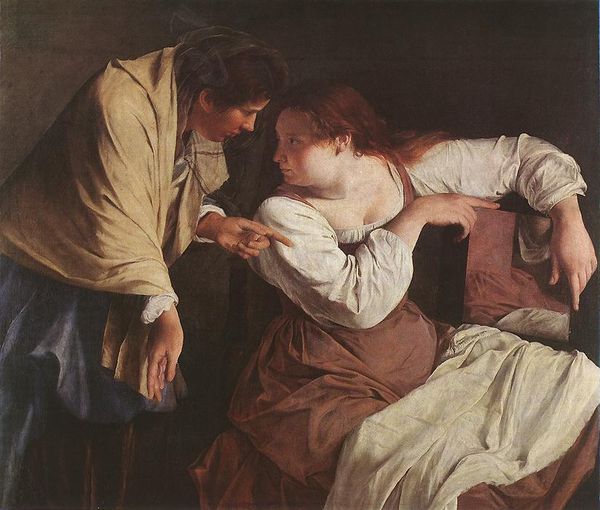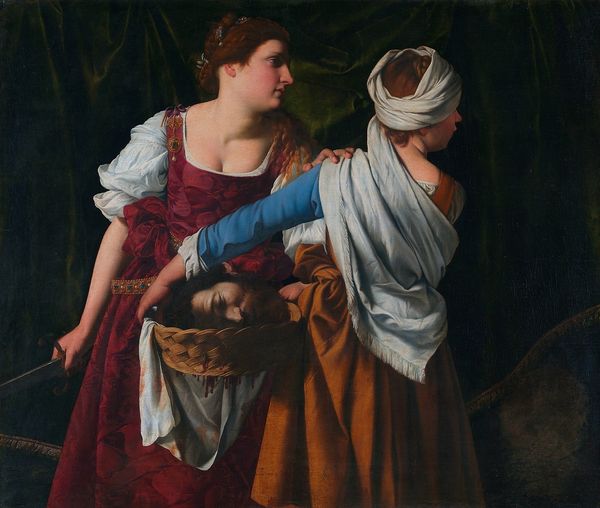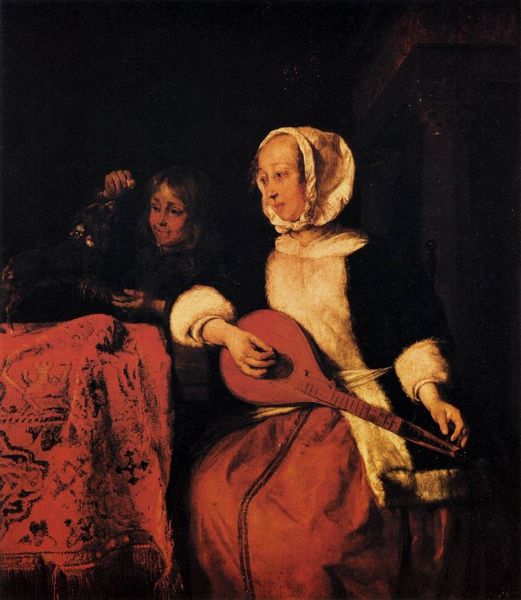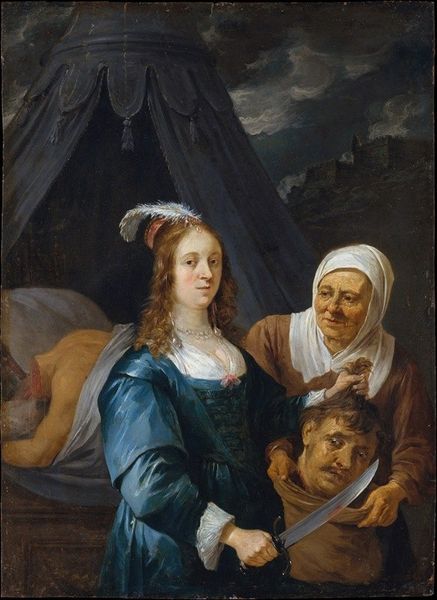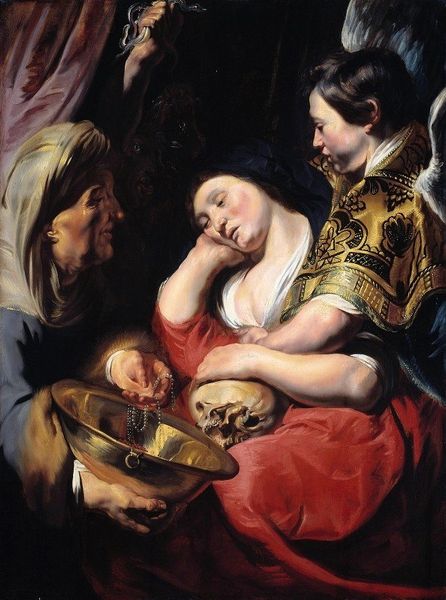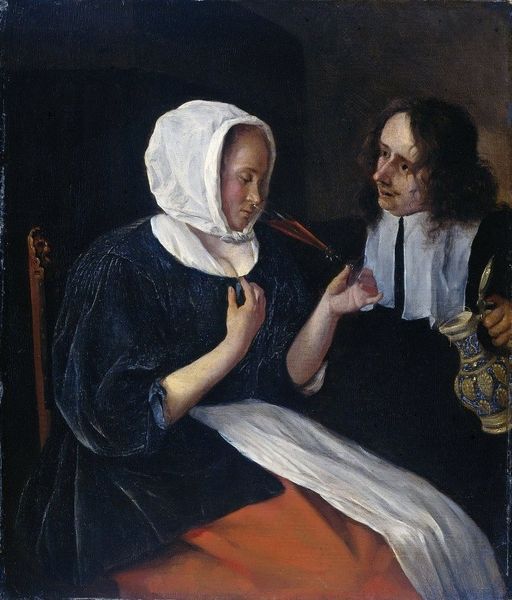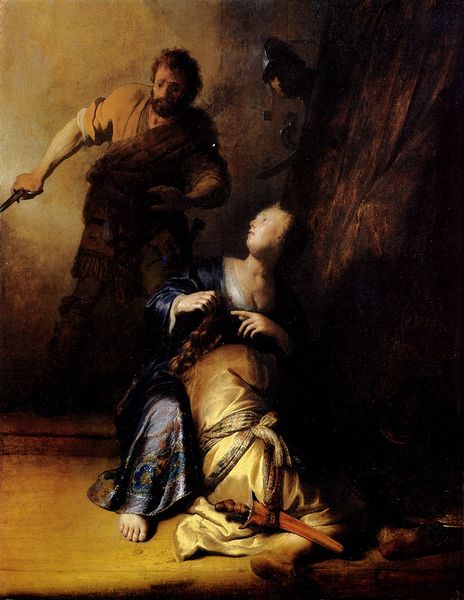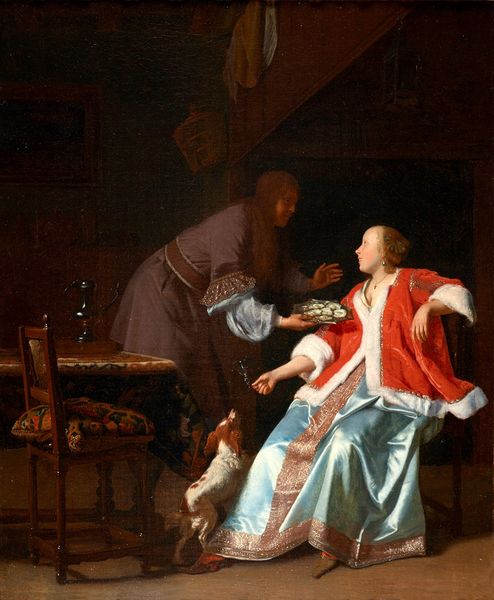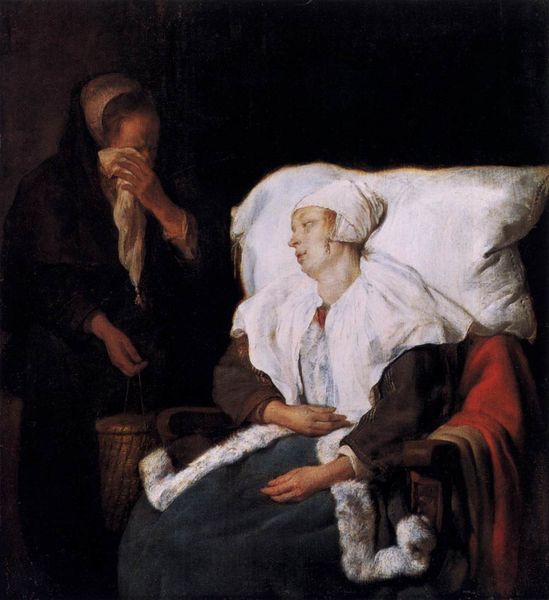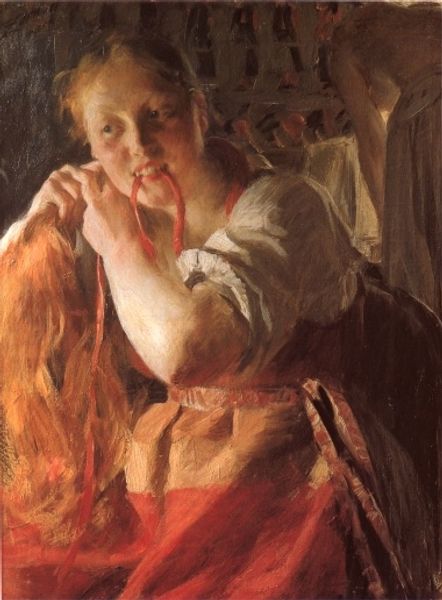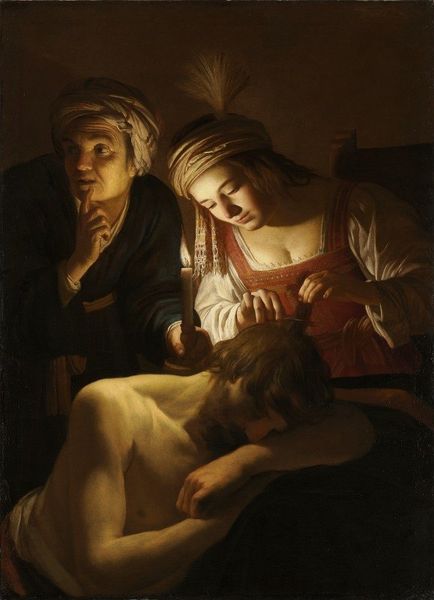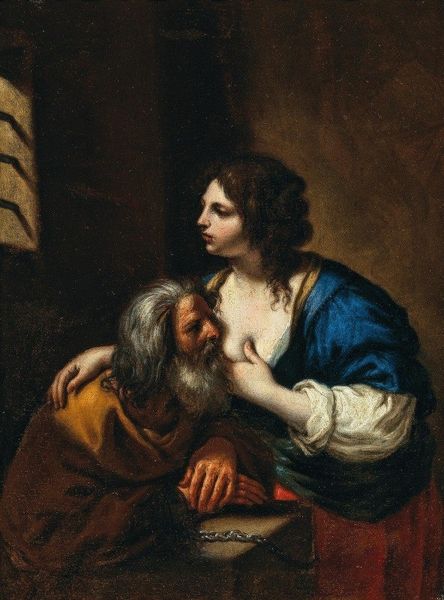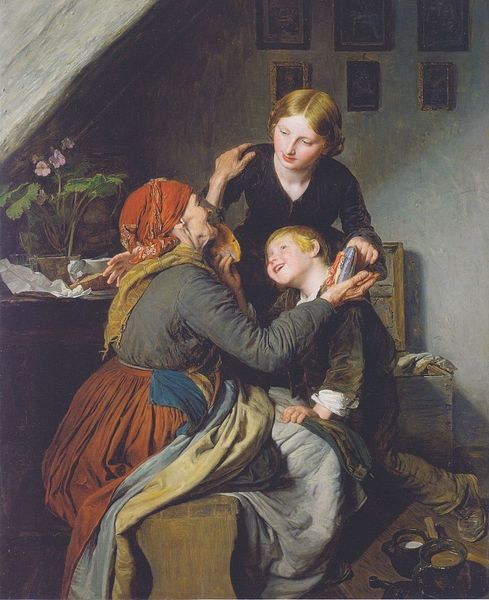
painting, oil-paint
#
portrait
#
narrative-art
#
baroque
#
painting
#
oil-paint
#
figuration
#
oil painting
#
group-portraits
#
history-painting
Copyright: Public domain
Editor: So here we have Gentileschi’s “Judith and Her Maidservant with the Head of Holofernes,” painted in 1624, oil on canvas. It's definitely dramatic! The faces are so intense, almost… conflicted. I'm curious, what strikes you most about this painting? Curator: It's the sheer… humanity. Gentileschi, for me, always managed to sidestep simple morality tales and show the sticky, messy aftermath. Look at Judith. She's done what she had to, but is there triumph? Or just exhaustion? I feel a lot of exhausted empathy. He puts the *women* at the center in such a masterful way! Editor: Definitely exhaustion, now that you point it out. The blank background contributes to that intimate, psychological mood too. The sword is prominently there and the light emphasizes the detail of Holofernes' face. Do you think this portrayal is glorifying it or warning us against it? Curator: Glorifying? No, no. Gentileschi presents the grim reality without flinching. And the drama! Look at how Judith avoids looking at the head itself, and only glances upward. What does that mean, do you think? Does she want praise from above? Or guidance? Editor: Maybe a silent prayer of "what have I done?" for some strength. What a terrible burden to bear, depicted through these striking facial expressions! Thanks, that really puts the work into a different light! Curator: The trick, isn’t it, is that he shows the woman dealing with that weight *after* it falls onto them! You think about this image, what a burden they both carry! This feels more real. More *urgent*.
Comments
No comments
Be the first to comment and join the conversation on the ultimate creative platform.
